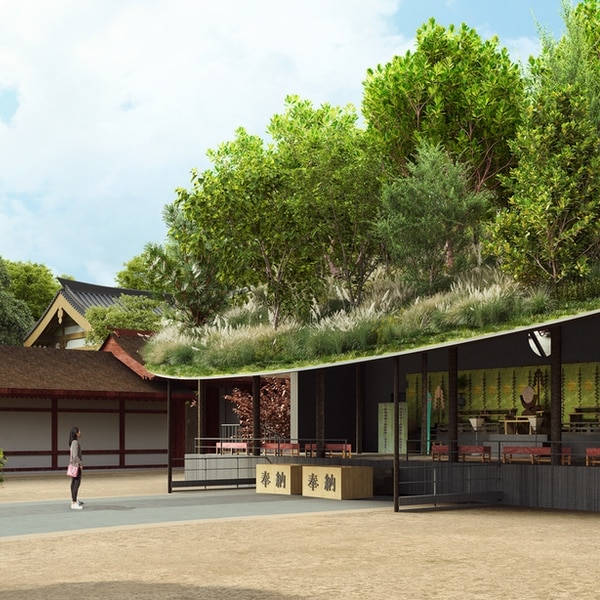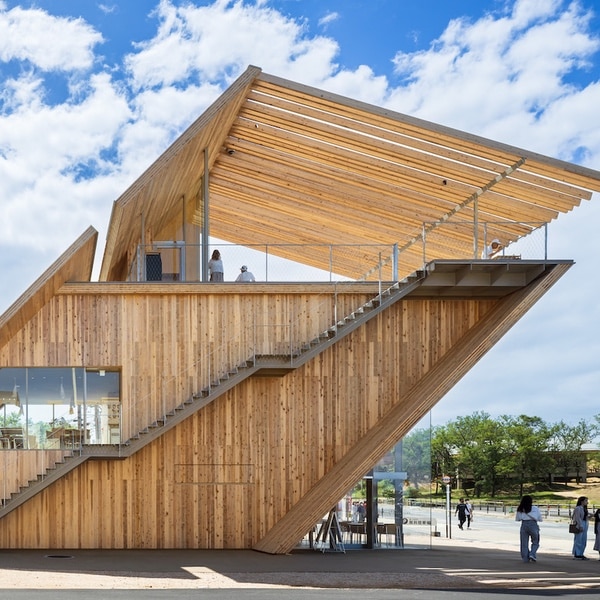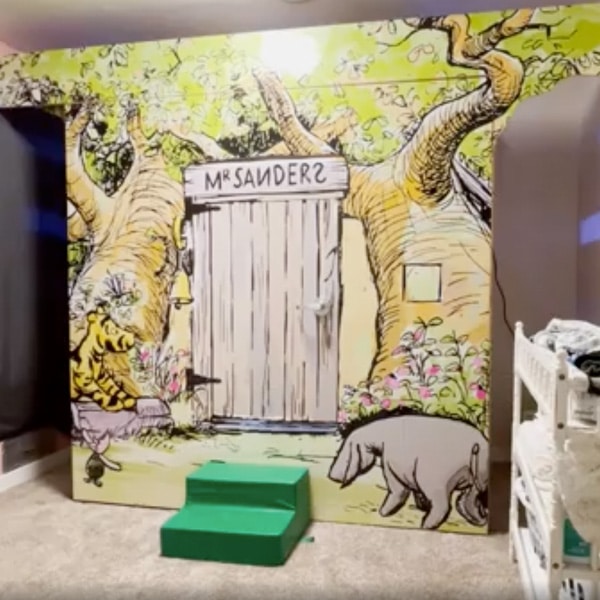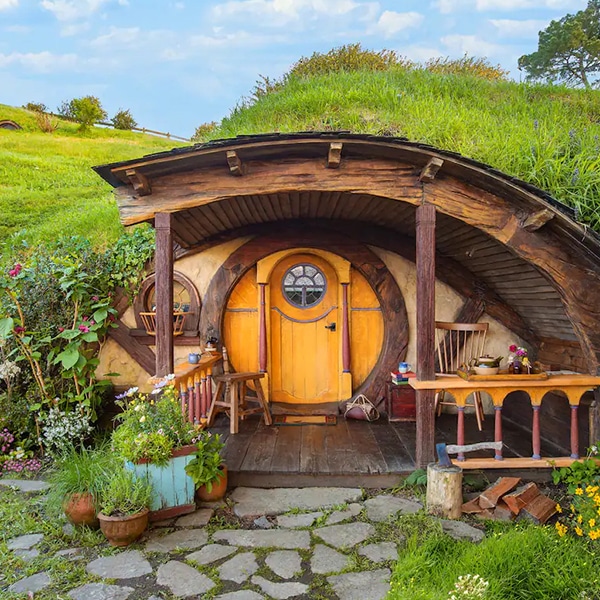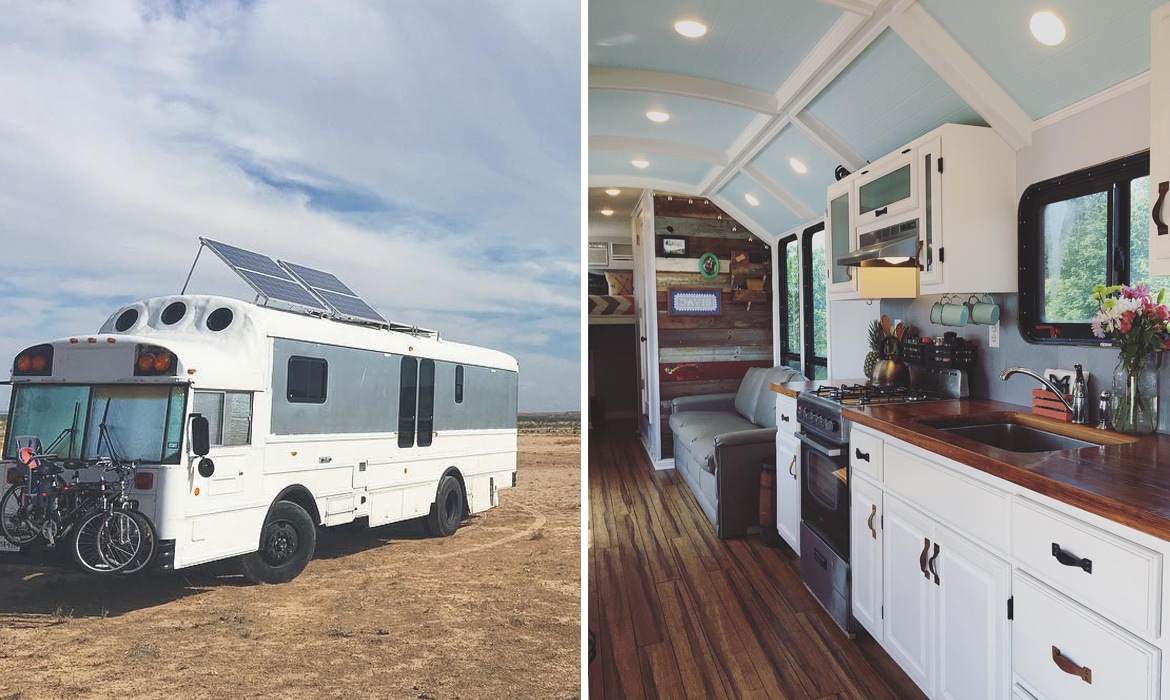
Brick and mortar homes are the norm, but that doesn't mean they’re the only choice when it comes to living space. We've seen before how industrial shipping containers can completely transform into a cozy abode. Similarly, the iconic yellow school bus lends itself to being an unconventional—but nonetheless functional—tiny house on wheels. An incredible school bus conversion is often called a “skooly.”
Why a school bus?
So, what's the appeal of a school bus conversion? For those with a permanent sense of wanderlust, these renovations offer a way to be on the move but still maintain the relative comforts of home. And better yet, a school bus is a blank slate. Once you remove the seats, you can build out and arrange the interior in a myriad of ways. Depending on your needs—like how many people will live on the bus—some layouts will make more sense than others.
School buses are built to last. Just think about the miles that they drive during day to transport kids to and from home—and not to mention field trips. If a bus is in good condition, their diesel engine can last more than a million miles! In addition to a long motor life, these vehicles are constructed with steel frames and floors, making them extra sturdy.
The initial cost of buying a bus is relatively inexpensive—especially when you compare it with the cost of an RV. On average, they’re between $3K and $7K, depending on the year and mileage. So if you’re a handy DIYer, there’s the potential to keep your costs low.
Converted school bus DIYs
Throughout the years, many folks have themselves converted an old bus into a unique RV home. Most people who embark on this DIY have the same goal—nomadic living. Here are two families who have made their dreams a reality.
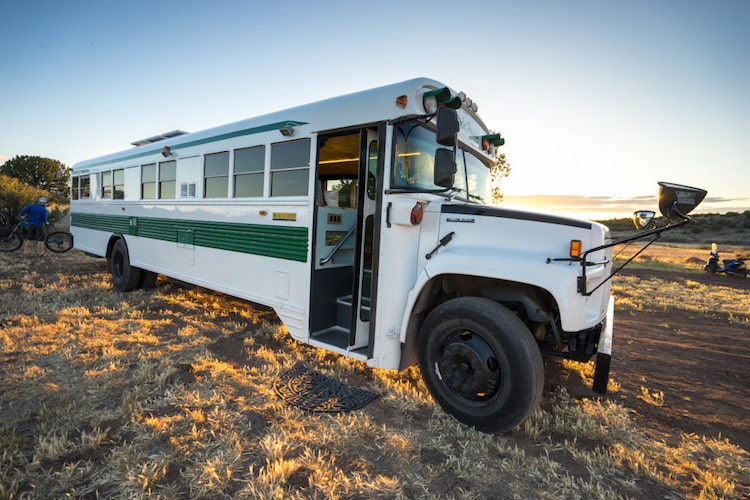
Photo: Outside Found
Outside Found can have adventures anywhere.
Will and Alyssa are two bloggers and adventurers of the website Outside Found. They work for themselves, and as a result, can be anywhere. In the spring of 2015, they converted a bus into a tiny 200-square-foot home. The couple started by buying a 2001 GMC BlueBird for $5,500 and then spent months designing and preparing the layout.
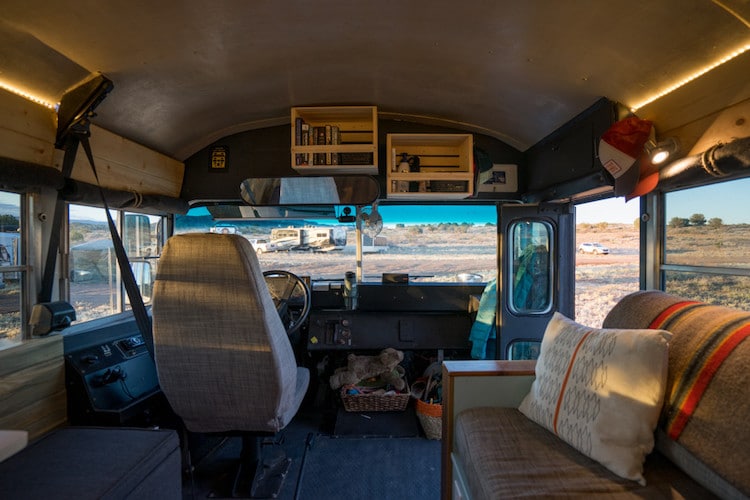
Photo: Outside Found
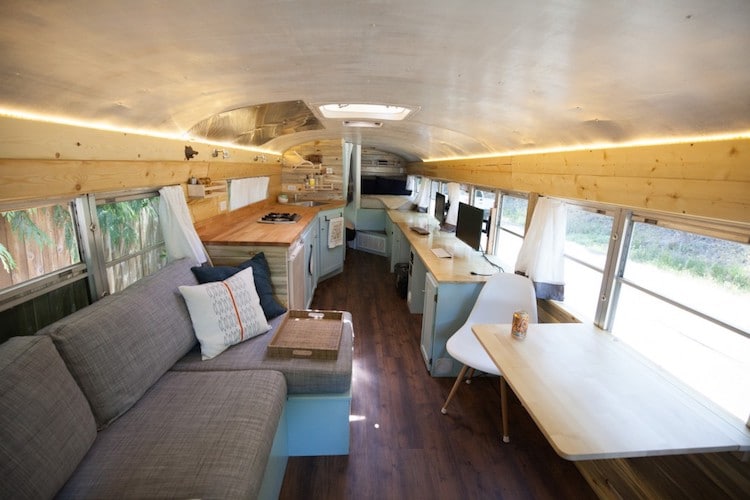
Photo: Outside Found
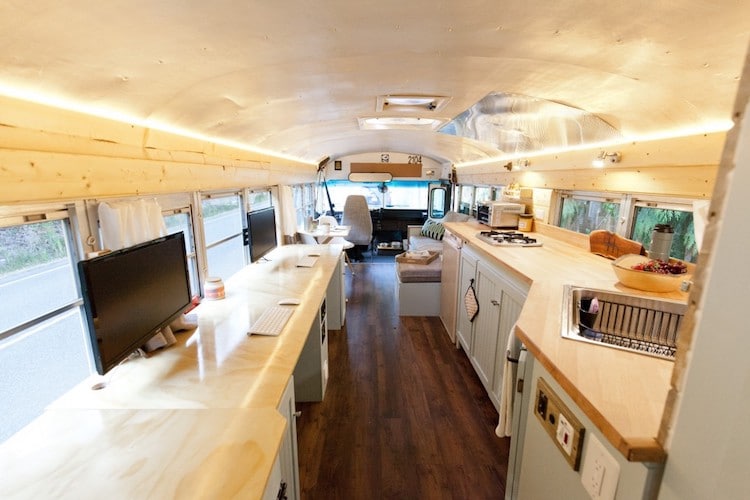
Photo: Outside Found
When you step inside, the bright and airy space doesn't feel like a bus at all. The area directly behind the driver’s seat is their “living room,” which includes a couch with integrated storage underneath. Moving beyond that space is their kitchen. It features the comforts of a more conventional home with a gas stove and fridge; the couple even says the kitchen is larger than they had in their first apartment. Across from the eating space is the office with a slightly lofted bedroom in the back.
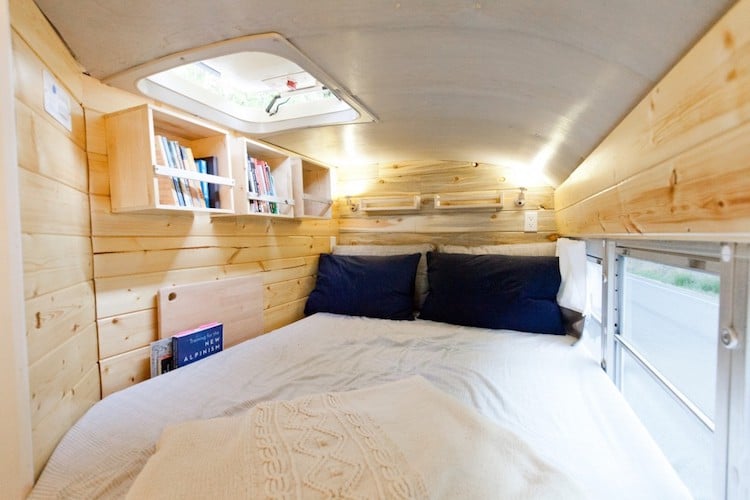
Photo: Outside Found
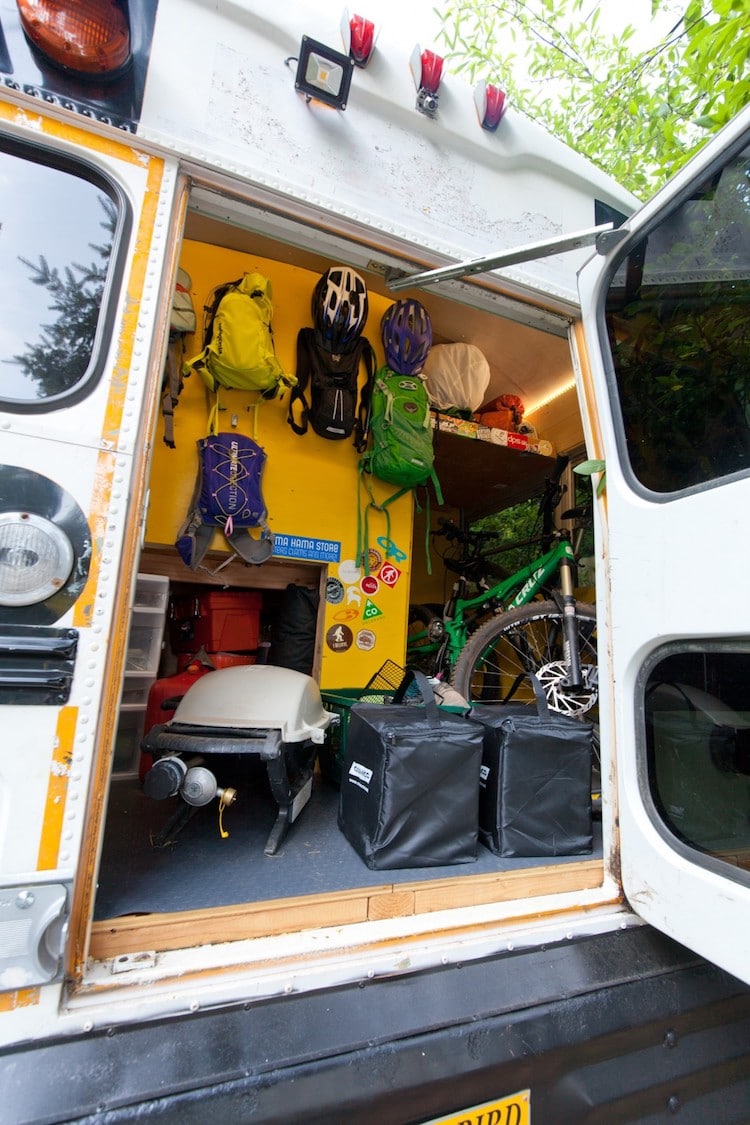
Photo: Outside Found
Will and Alyssa’s home has a feature you wouldn’t expect with a converted school bus—a garage! The rear-end door opens to reveal their bikes, backpacking, climbing, and kayaking gear.
The Midwest Wanderers can comfortably go off the grid.
Luke and Rachel Davis, aka the Midwest Wanderers, are another couple who bought their own school bus and now live life on the road. They traded in their 1,500-square foot conventional home and together with their young child (and dog), find “freedom, adventure, and interesting people” in a 220-square-foot skooly.
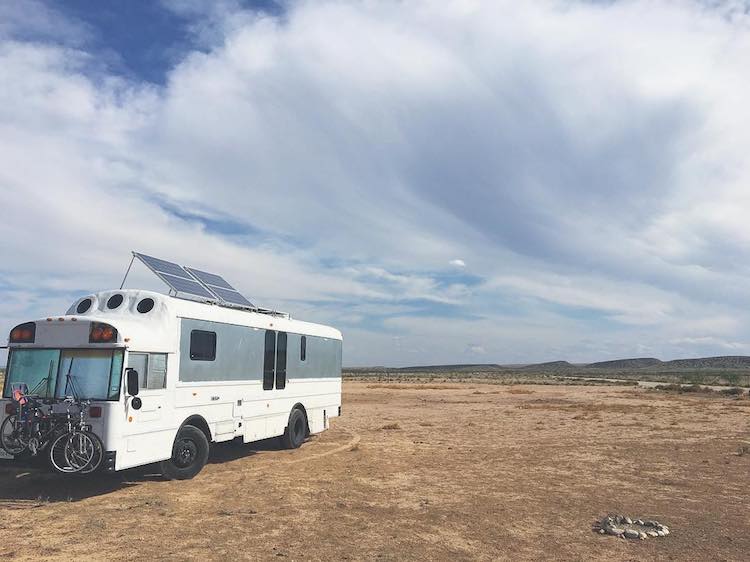
Photo: Midwest Wanderers
“At first it seemed like such a crazy, far out idea,” Luke writes, “the kind you only dream of doing but ‘could never really happen.' The more we talked about it the more we realized we couldn’t shake the desire for this lifestyle of freedom.” They later bought a bus for $4,000 and got to work.
Luke, a pipe fitter by trade, was well equipped for this massive DIY. He explains to Bryce Langston of Living Big In A Tiny House, “I’ve definitely done a lot of work in the trade—welding, fabricating, and all that.” But, there was still more master. “We had to learn a lot to do all the components—the electrical, the solar.” Their tiny house features 100 watts of solar and a four-battery bank, which makes them self sufficient.
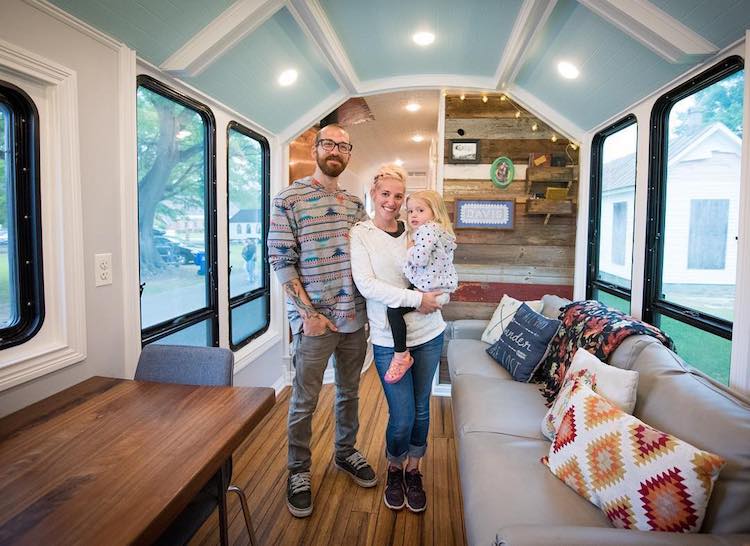
Photo: Midwest Wanderers
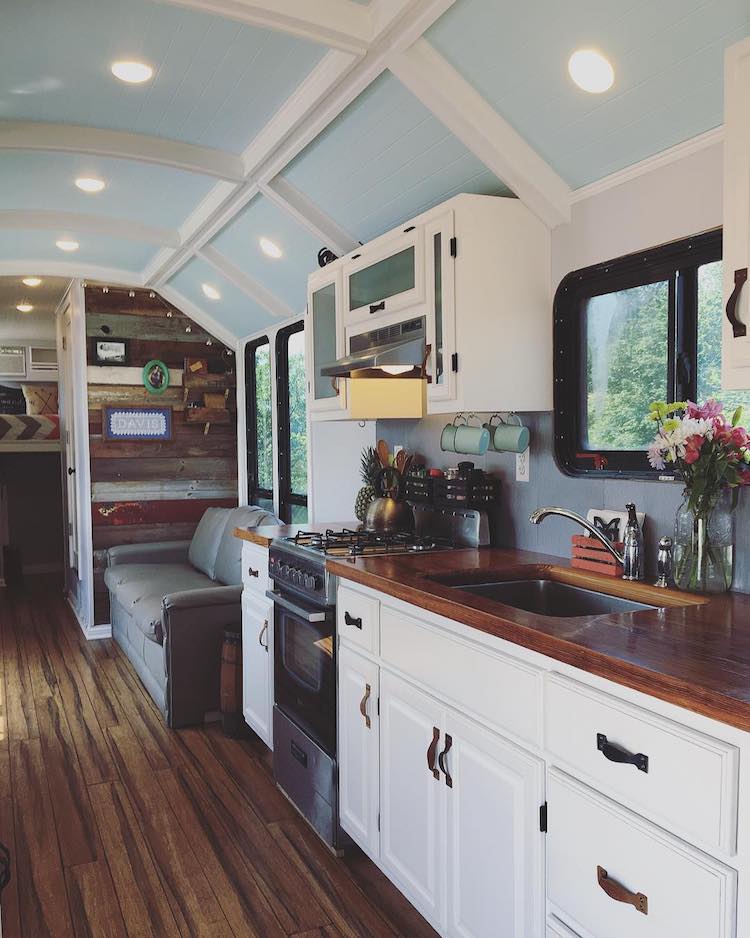
Photo: Midwest Wanderers
The project took the family a year and a half to complete, but once you’re inside, it’s easy to see why. Not only did the they transform the space into a cozy abode, but they also raised the vehicle's roof. The ceiling is 20 inches higher than a conventional school bus, but the nearly two feet make a big difference. “It does not feel at all like a bus,” Rachel remarks.
Take a tour of the Midwest Wanderer’s converted school bus in the video below.
School bus conversion inspiration
Check out some other skooly transformations.
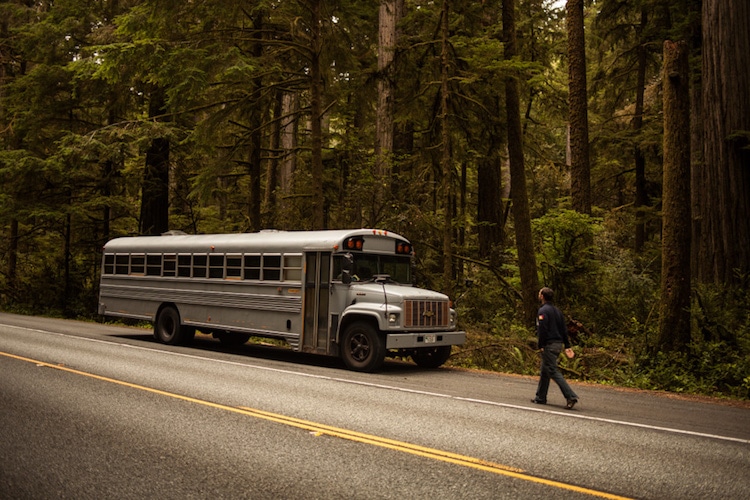
Photo: Hank Bought a Bus
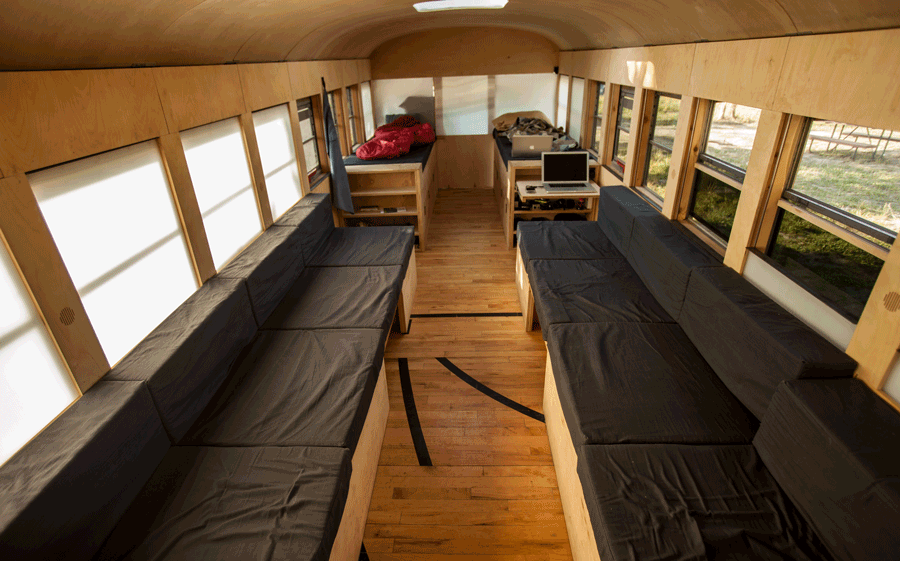
Photo: Hank Bought a Bus
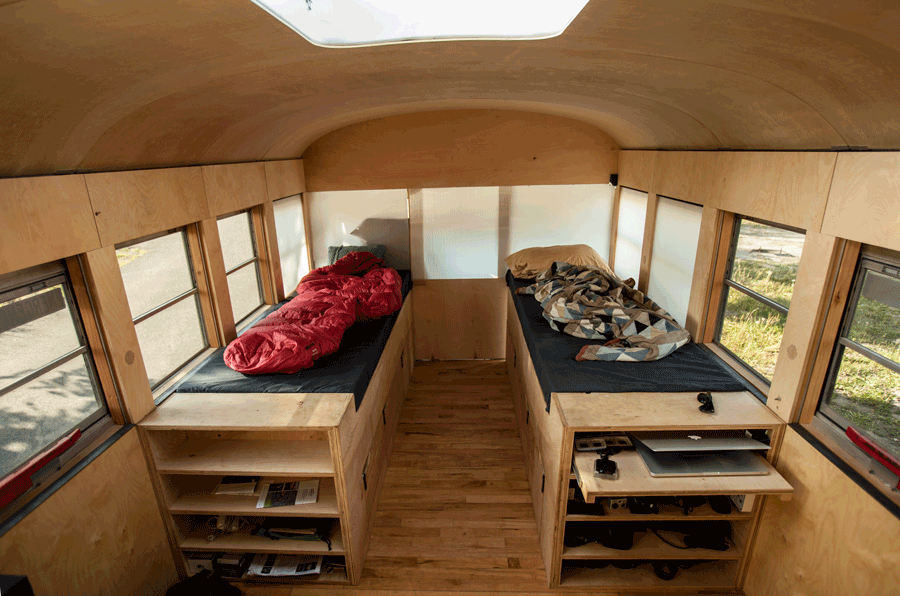
Photo: Hank Bought a Bus
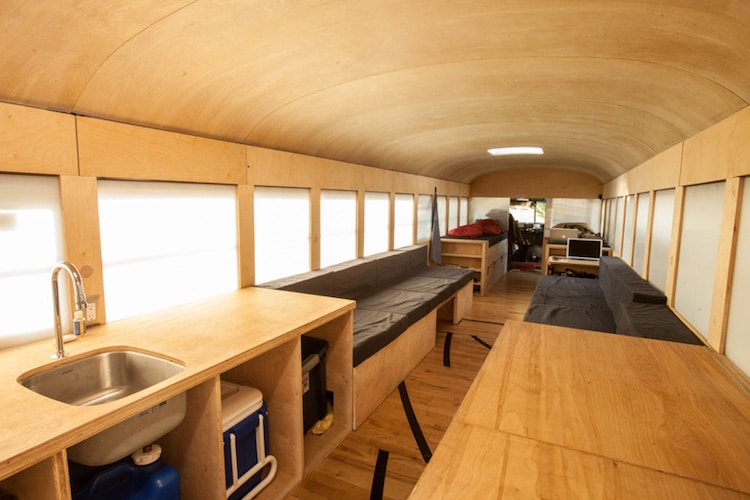
Photo: Hank Bought a Bus
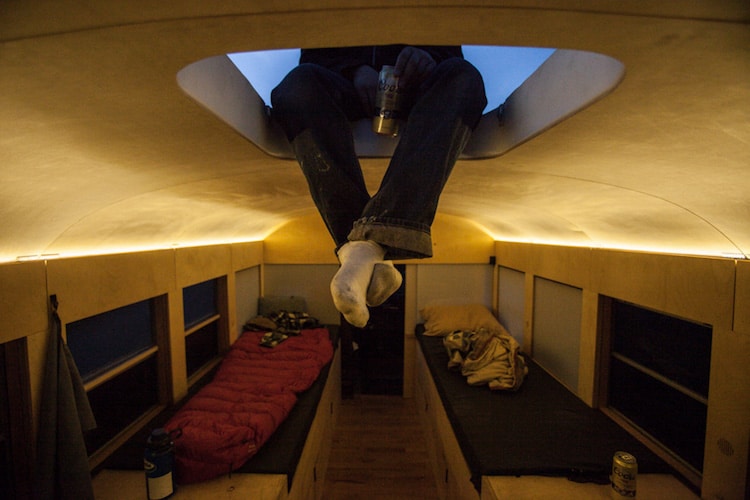
Photo: Hank Bought a Bus
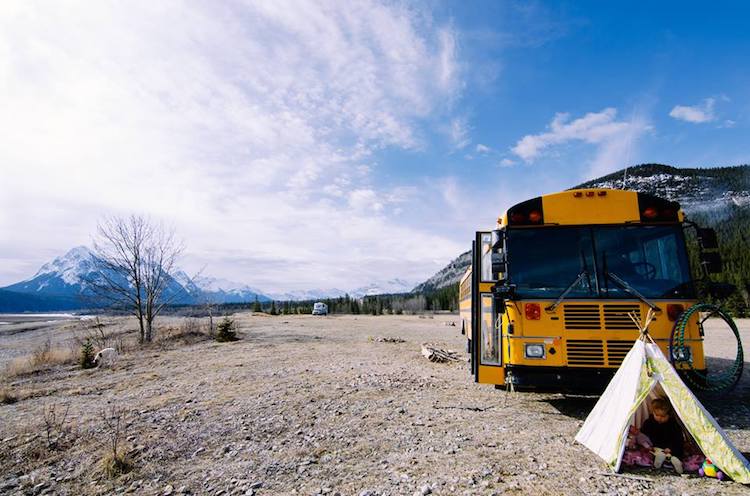
Photo: Our Dharma Tribe
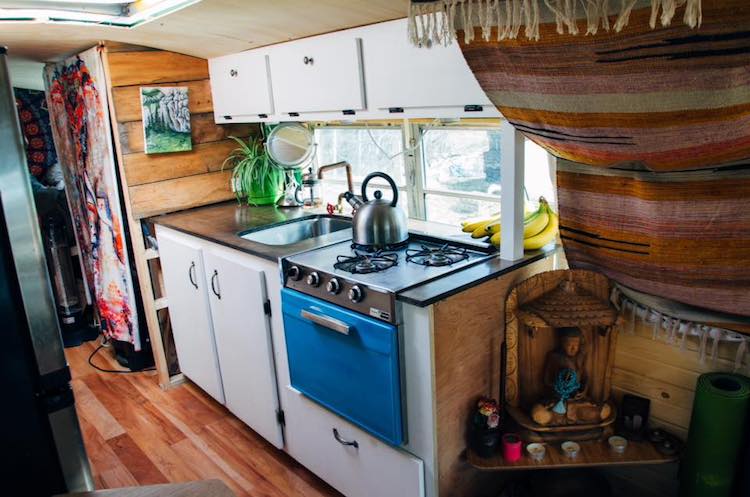
Photo: Our Dharma Tribe
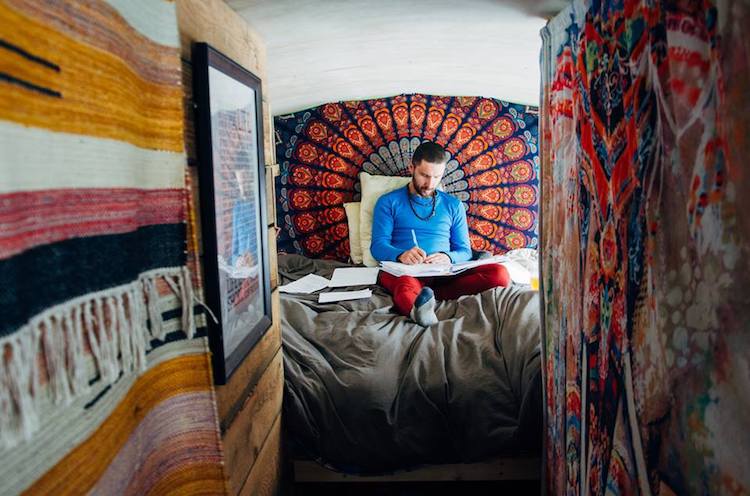
Photo: Our Dharma Tribe
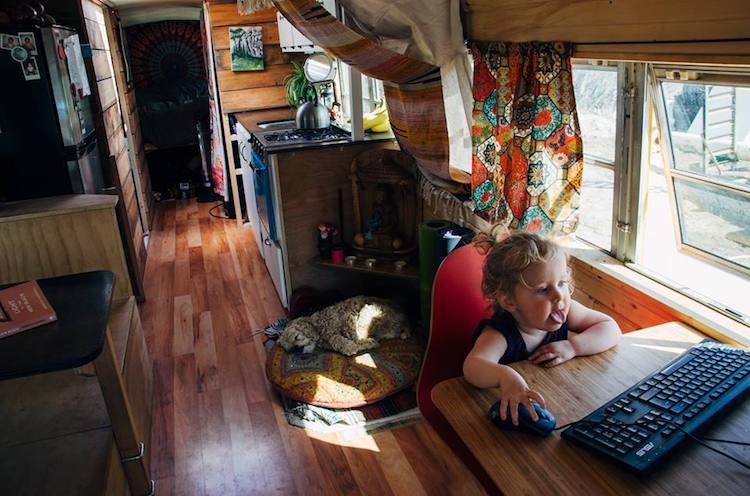
Photo: Our Dharma Tribe
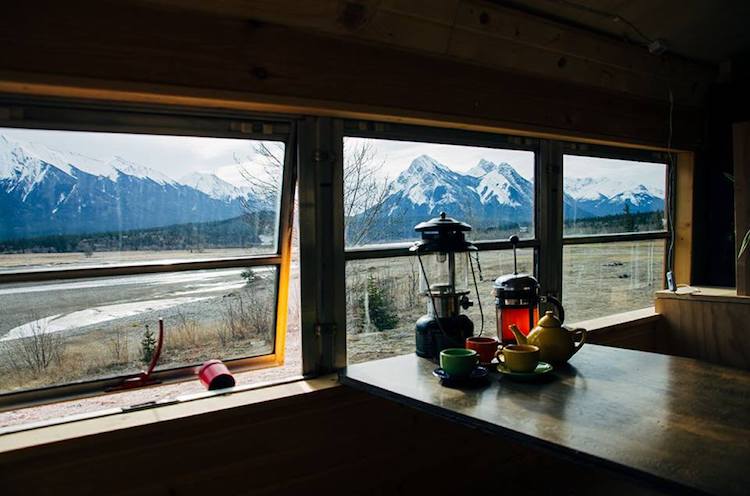
Photo: Our Dharma Tribe

Photo: Jake Von Slatt
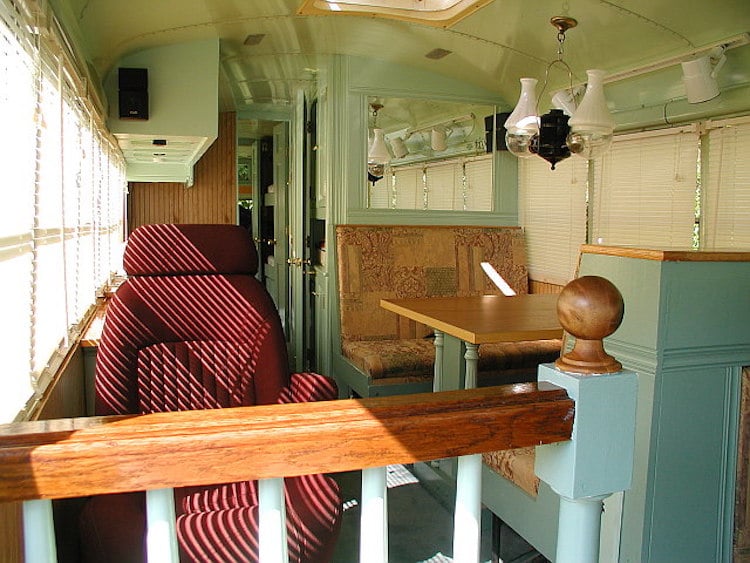
Photo: Jake Von Slatt
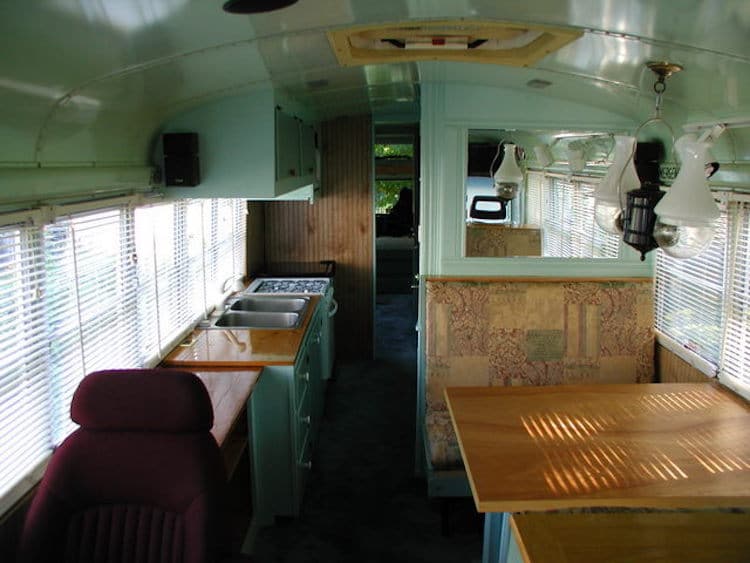
Photo: Jake Von Slatt
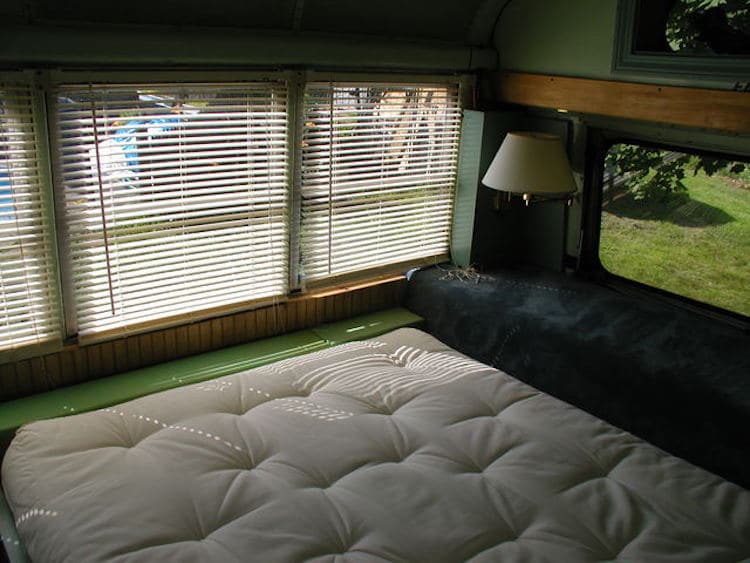
Photo: Jake Von Slatt

Photo: wpi Creative
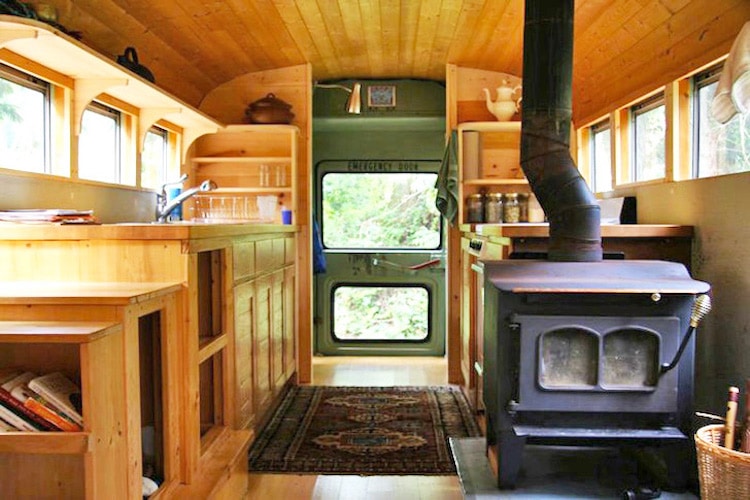
Photo: wpi Creative
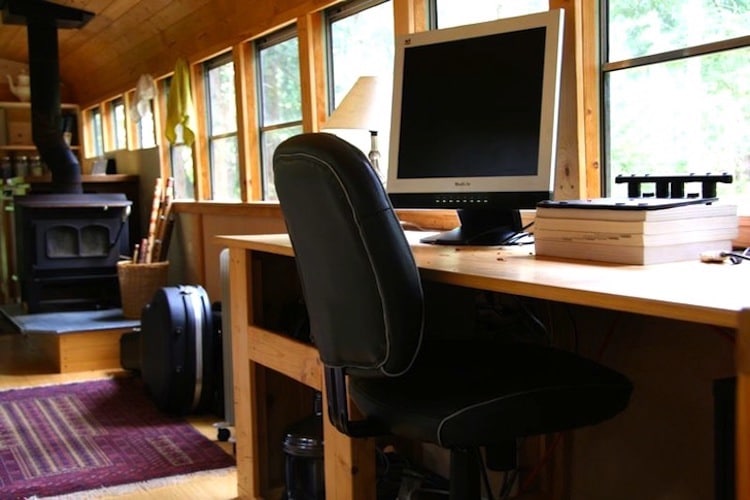
Photo: wpi Creative
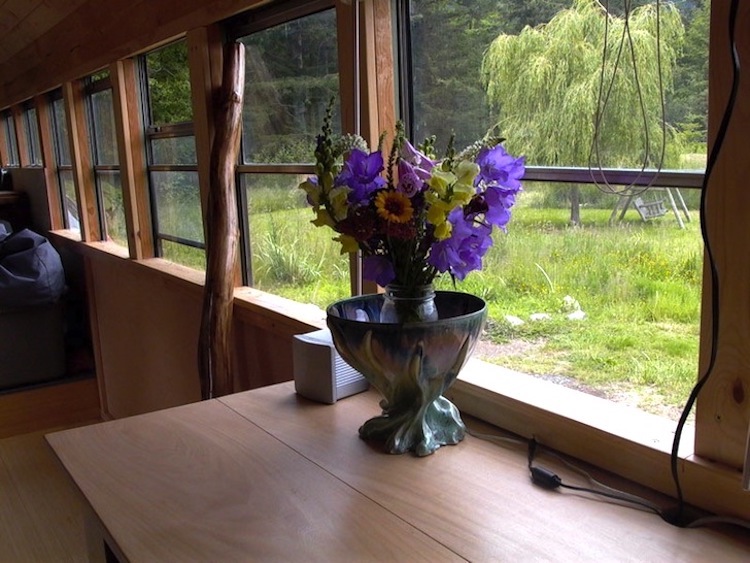
Photo: wpi Creative
Related Articles:
Adventurous Couple Quit Their Jobs and Built a Tiny Mobile House to Travel Across the Country
Old Shipping Containers Given New Life as Stylish Eco-Friendly Homes
Architect Transforms Abandoned Cement Factory into His Own Extraordinary Home
College Student Builds Tiny House to Graduate Debt-Free
Tiny Mobile House Made From Upcycled Materials Lets You Live Off-Grid and Mortgage-Free


































































